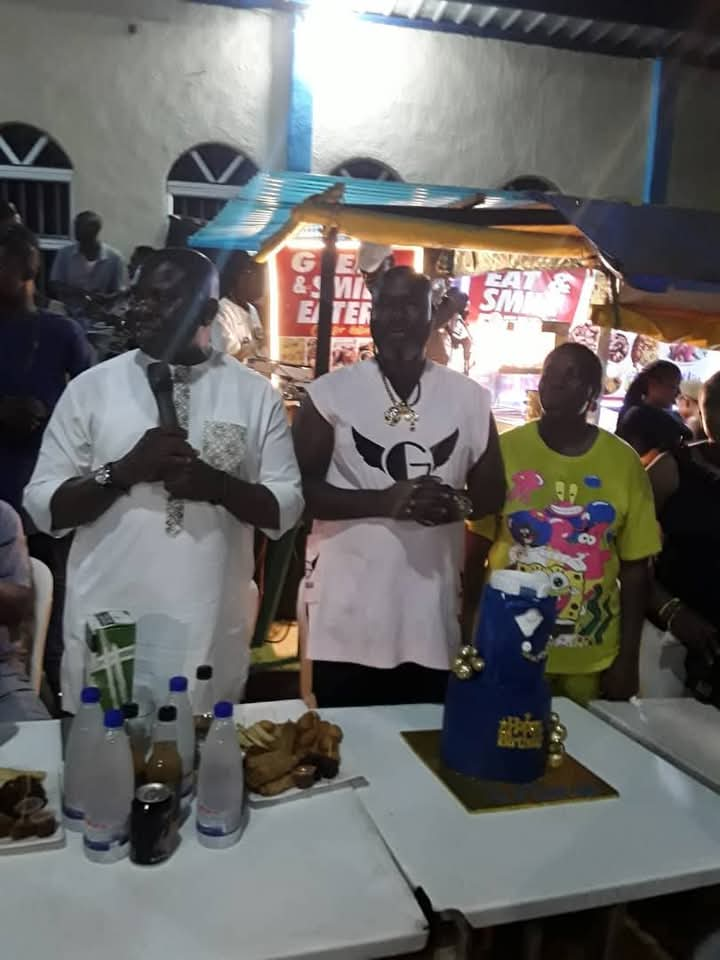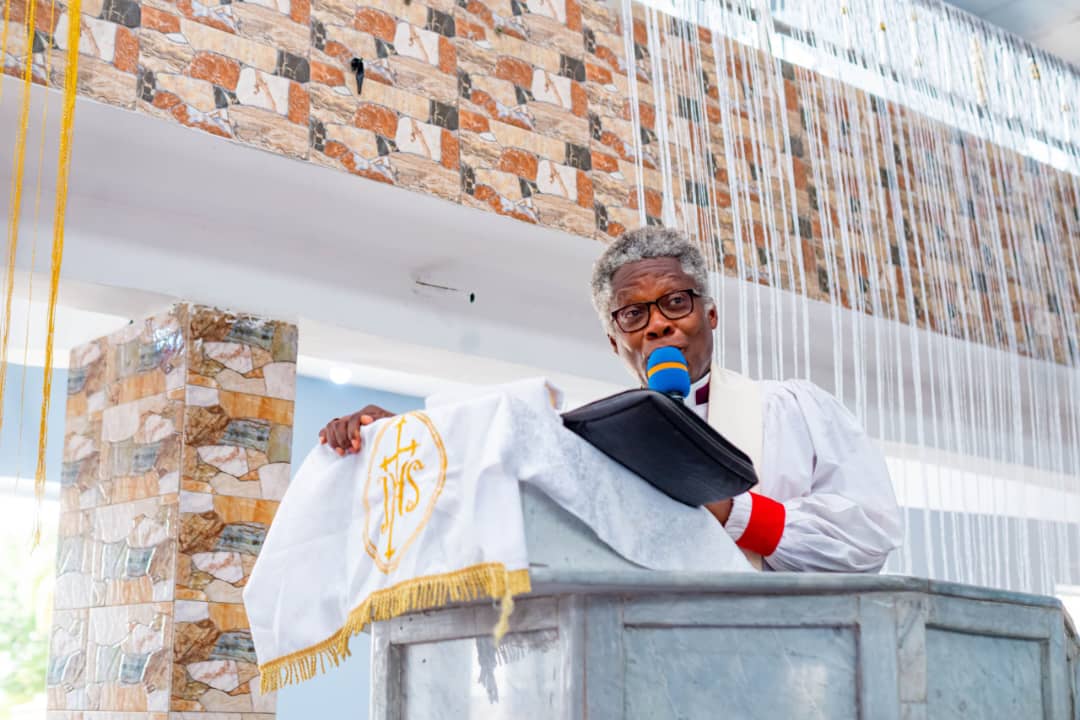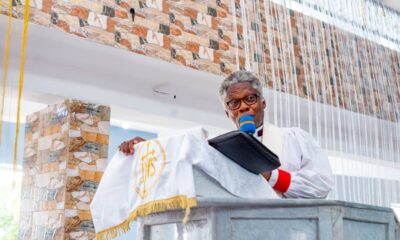Niger Delta
658 Communities To Benefit From Fadama III In S’South
More than 658 communities in the South-South zone of the country are to benefit from the implementation of the Fadama III projects.
The Fadama III Zonal Project Coordinator, Dr Isaiah Foby, disclosed this in Yenagoa on Tuesday during the second World Bank/Federal Government supervision mission to the zone.
The Tide’s source reports that state coordinators of Fadama III projects and supervisors from the World Bank and the Federal Ministry of Agriculture were in Yenagoa for a review of the projects.
Speaking at the occasion, Foby said that the introduction of the Fadama project was an important intervention programme of the World Bank and the Federal Government.
He explained that agriculture was capable of reducing poverty, provide employment, create wealth and assist in the attainment of national food security.
Foby said that the project offices were spread across 104 local governments in the zone, adding that the zone also had more than 6,000 Fadama user groups, to boost food production.
The leader of the World Bank team, Prof. Tohomdet Obadiah, in his assessment of the project, called on all states to ensure prompt payment of their counterpart funding for the project.
He stressed the need for them to mobilise more people to benefit from the scheme to ensure improved food production.
In his address of welcome, the Bayelsa Commissioner for Agriculture, Chief Dikievie Ikiogha, called on the implementation units of the projects to intensify efforts in monitoring sub-projects in various communities.
He said that this would ensure that the objectives of the projects were met.
Ikiogha said that Fadama III project was in line with the state government’s economic empowerment and development strategy to boost production.
The Bayelsa Fadama Project Coordinator, Mr Kenneth Opukeme, later told the source that more than 100 communities in the state would benefit from the project with budget estimate of more than 7.8 million dollars.
Opukeme said the scheme required a counterpart funding of N50 million, annually, from the state government, for the successful implementation of the five-year project.
Niger Delta
Bipi Celebrates Gen Asabuja On Birthday

The Rivers State Commissioner for Urban Development and Physical Planning, Rt Hon Evans Bipi, has eulogised Gen Gabriel Asabuja over his recent birthday celebration in Port Harcourt.
Bipi said Asabuja is worth celebrating following his numerous contributions and support to the administration of Governor Siminalayi Fubara.
He described Asabuja as a strong pillar of governance in Rivers State, adding that the Ministry of Urban Development and Physical Planning is happy working with him.
He noted that Asabuja’s position as a team leader of the Ministry’s taskforce has been amazing, saying the Ministry is proud associating with him.
The former lawmaker hinted that since Asabuja assumed office as leader of the taskforce, the Ministry has witnessed tremendous improvement.
Bipi said the Ministry will always stand by him to ensure that the dreams of the Governor Fubara-led government are achieved.
On his part, the celebrant, Gen Gabriel Asabuja expressed gratitude to God and the Commissioner for the honour done him.
Gen Asabuja also commended Governor Fubara for his tremendous and good leadership in the State, saying his group will continue to give the Governor maximum support in order to achieve more for Rivers people.
Gen Asabuja described Rt Hon Evans Bipi as one of the best brains working with the Governor, saying under Bipi, the Ministry of Urban Development and Physical Planning has shown capacity to leverage on the Governor’s mantra of Rivers First.
He said both the personnel of the Ministry, the Directors and adhoc staff are happy with his style of leadership.
Niger Delta
Joint Provincial Council, East Of The Niger Salutes Diocese Of Evo

The Joint Provincial Council, East of the Niger, Anglican Communion, held its 2025 Annual General Meeting at St. Michael’s Church, Rumuomasi Deanery, Diocese of Evo from Saturday 15th — Sunday 16th February, 2025.
The meeting which had the theme, “Kept By His Mercies”, with text from Lamentations 3:22-23, had the Archbishops, Bishops, their wives, Chancellors, Financial Secretaries and Synod Clerical Secretaries of the 58 Dioceses as delegates.
At the opening ceremony on Saturday, the Dean of the Church of Nigeria (Anglican Communion) and Chairman of the Council, Most Rev Blessing Enyindah, charged delegates to stay focused and committed to the matters for discussion and implement decisions reached for the growth of the Church in the region and the advancement of the business of God’s Kingdom.
Most Rev Enyindah, who is also the Archbishop of the Niger Delta Province and Bishop of the Diocese of Ikwerre, lauded the Diocese of Evo for the giant strides recorded in just 15 years of existence while tasking the leadership not to rest on its oars but to strive further to complete the work of the Kingdom in their hands.
Addressing the council in his welcome address, the Bishop of the Diocese of Evo and host of the Joint Council, The Rt Rev Innocent Ordu, welcomed the delegates, and reminded them that the theme is apt and fit as it reminds the Church of God’s inexplicable and instructible mercy towards mankind, which supersedes His righteous judgements.
Bishop Ordu further lamented the many challenges bedeviling the country, such as skyrocketing cost of living, ravaging sicknesses and ailments, proliferation of harmful drugs, natural disasters, high level corruption in public offices, inept political leadership, amongst others, which he said could not consume mankind because of God’s mercies.
In their separate speeches, delegates saluted the Diocese of Evo for willingly accepting to host the council and the comfort they enjoyed during their stay.
Earlier, the council appointed the Synod’s Clerical Secretary of the Diocese of Evo, Rev (Canon) (Dr) Ebenezer Owhor as the Assistant Secretary of the Joint Council.
Also, before the commencement of plenary, the women of St. Michael’s Church, Rumuomasi Deanery thrilled delegates to good traditional tunes and dance steps while His Royal Highness Eze( Sir) Raymond Chinda led the chiefs and elders of Rumuomasi community in Oropotoma Kingdom, to appreciate the council for choosing the community to host the meeting.
They solicited for prayers of peace, unity and development from the council.
The meeting ended on Sunday evening while the Archbishops and Bishops worshipped in various churches in the Diocese of Evo.
Niger Delta
Okpebholo’s Aides Lead Cancer Awareness Walk In Benin … Offers Free Screening
-
Niger Delta5 days ago
Okpebholo’s Aides Lead Cancer Awareness Walk In Benin … Offers Free Screening
-
Sports5 days ago
Niger Delta Sports Festival: Bayelsa Sports Ministry Inaugurates Liaison Committee
-
Politics5 days ago
Osun LG Crisis: APC, PDP Lose Members As Adeleke Shuts Councils
-
News5 days ago
Fubara Applauds IGP For Donating Gunboats To Rivers Police
-
Business5 days ago
Experts Predict Inflation Hike In N54.99trn 2025 Budget
-

 Niger Delta5 days ago
Niger Delta5 days agoJoint Provincial Council, East Of The Niger Salutes Diocese Of Evo
-
Sports5 days ago
NPFL : Finidi Optimistic To Get Three Points In Uyo
-
Politics5 days ago
100 Days In Office: Lawmaker Passes Confidence Vote On Council Boss

